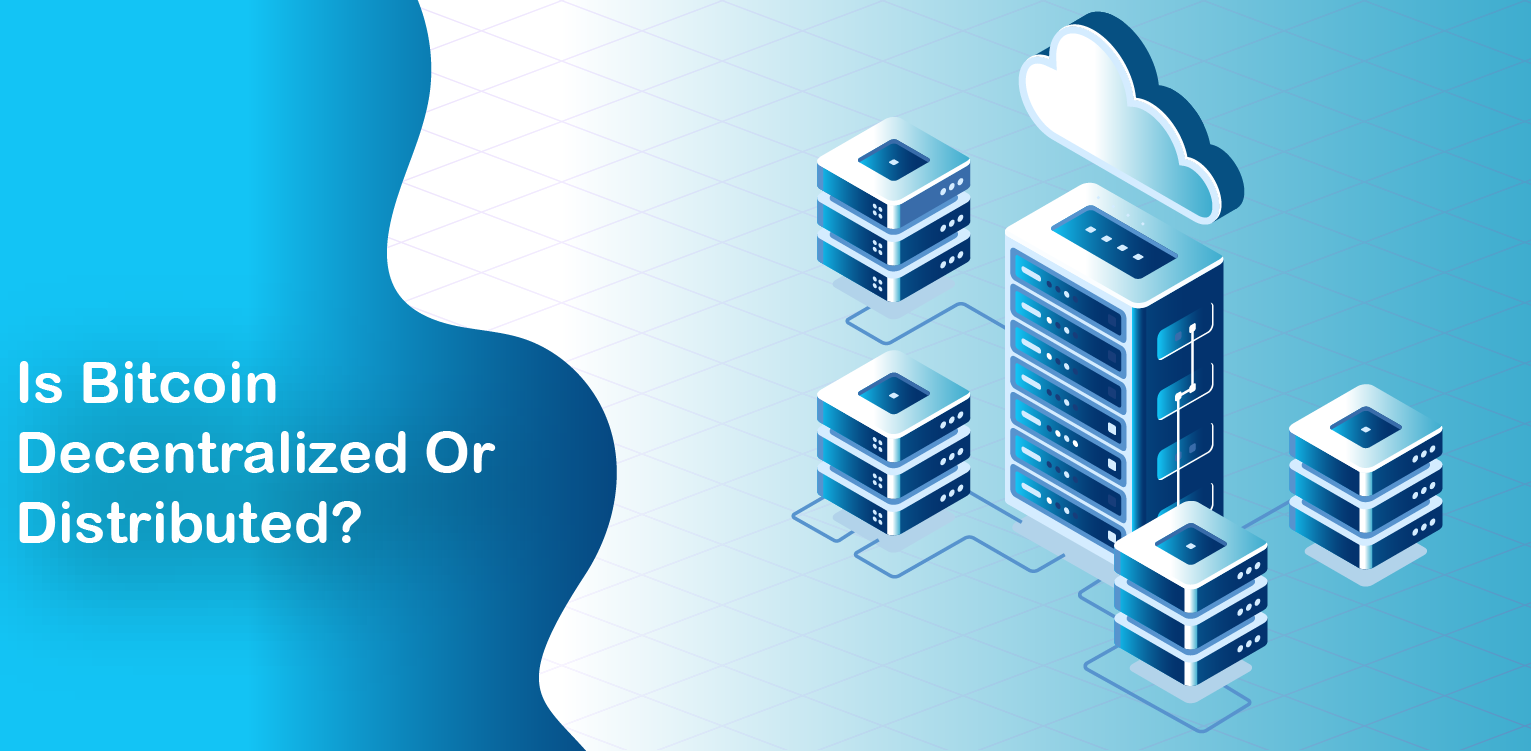Bitcoin is a cryptocurrency with a decentralized production process and distributed ledger. Is the foremost cryptocurrency both distributed and decentralized or is Bitcoin only distributed or decentralized? Bitcoin is a crypto that uses blockchain technology and has a proof of work consensus mechanism. It is free from a central authority and was created by Satoshi Nakamoto to be spread across multiple nodes. As the article proceeds, a decentralized vs distributed analysis will be done.
Is Bitcoin centralized or decentralized?
Bitcoin is a blockchain-based platform that uses a peer network and the proof of work consensus mechanism. By Bitcoin’s blockchain, which is Proof of work, it means that a group of users spread across multiple countries use massive computing power to try and solve a complex mathematical puzzle. The winner of the puzzle-solving competition is rewarded with a Bitcoin. These users are called miners.
Since this digital currency is not controlled by a single entity in the real world, it is highly decentralized and open source. Many cryptos, for example, Bitcoin, tend to preach decentralization and the perks that users get when they do away with centralization. Decentralized means that Bitcoin’s blockchain system is run by multiple nodes scattered around the world. Transactions are verified by these nodes.
Also read: Can Bitcoin Become The One World Central Currency? | 2021
Is Bitcoin a distributed system?
Before we go further to explain what a distributed system is, can it be said that all distributed systems are decentralized?
Distributed means that, in the case of Bitcoin, the ledger is shared across every node in the network, meaning that if one node is corrupted, the network won’t be corrupted. Every node in the Bitcoin network has access to the ledger of the transactions that had occurred in the blockchain network. No single node can control what happens in the chain.
Centralized systems can also be distributed. To clarify this, let us use a crucial example. A bank usually doesn’t store its data in one spot, not minding that it is a centralized institution. It may share the data to different computers, thereby making it distributed. The centralization aspect comes into play because the bank, a single entity, controls every computer in the network.
On the other hand, bitcoin is a cryptocurrency on the blockchain that acts as a peer to peer network, which is not controlled by any single entity.
Is Bitcoin fully decentralized?
Bitcoin, like most open source and public blockchains, is a fully decentralized system and is not controlled by a single entity. Though it may have been created by Satoshi Nakamoto, it doesn’t have a management body or centralized authority deciding on what should happen.
The only time decentralized blockchains that use the Proof of Work consensus system can be at risk of centralization is if a miner takes over a large part of the nodes, which may result in a 51% attack. This is not possible.
Yes, Bitcoin is a decentralized and distributed blockchain network.
